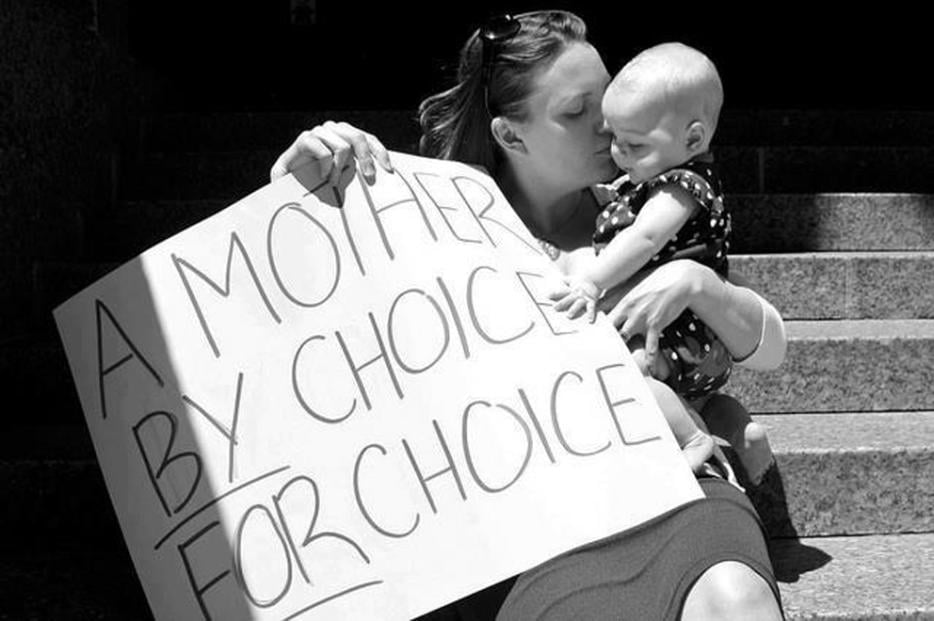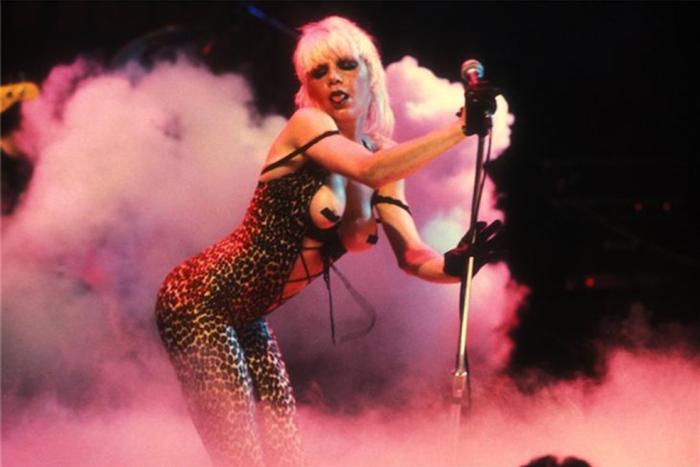“I am not a Nazi.” With that statement, Sarah Erdreich opens Generation Roe: Inside the Future of the Pro-Choice Movement, her new book exploring the past, present, and future of the United States abortion landscape and the providers and volunteers who make it their life’s work. Forty years ago, Roe vs. Wade made abortion legal in the United States, despite the objections of some anti-choice activists who portrayed its advocates as ripped right from the Third Reich. But, as Erdreich argues, legal doesn’t necessarily always mean readily available. In recent years, new restrictions and state provisions on reproductive health have made abortion increasingly hard to access and fraught with divisive rhetoric. Since 2011, the United States has seen a marked increase in laws that restrict abortion; most recently, North Dakota passed a bill banning most abortions once a fetal heartbeat can be detected, which can occur as early as six weeks into a pregnancy. Erdreich spoke to Hazlitt about her book, these restrictive new laws, and the need for empathy when dealing with women’s choices.
At one point in the book you state that in 2011, 135 state provisions related to reproductive health were enacted in 36 states. Out of these provisions, 92 restrict access to abortion. Is it our imagination that we’re seeing these laws more often, or have they actually increased and intensified in the past couple of years?
It really has intensified. I want to say, in 2012, 43 provisions passed, which is a lower number, but it’s still the second-highest number of provisions that have passed, with 2011 being the highest. I think in some respects, every time there is a pro-choice president, there has been an increase in anti-abortion activity. When President Clinton was in office, that’s when you saw a lot of the violence toward doctors and clinic staffers [who provide abortion] hit its high point. George Tiller [a Kansas doctor whose clinic was one of the few in the country that offered late-term abortions] was killed in Obama’s first term, so I think that when there’s a pro-choice president, you unfortunately see anti-choice activity manifest in different ways.
Is this new bill in North Dakota an evolution of what has already been happening in the anti-choice movement? Where does this fit in the current climate of abortion rights?
I think it is a progression. Once they start saying you could ban abortion after 20 weeks, it’s just a matter of time before an anti-choice legislator says, “well, how far can we push this? Can we make it 12? Six?” I think what’s so interesting about North Dakota, the ban is just one part—other restrictions of the bill I find just as onerous. By saying you can ban abortion after a fetal heartbeat can be detected, this is the first time… I mean, Arkansas tried something similar, they have a 12-week ban because they explicitly said after a heartbeat can be detected by trans-abdominal ultrasound. North Dakota hasn’t made that distinction yet as far as I know. While I don’t think anyone expects that this six-week ban will hold, the fact that it passed and was signed by the governor has really taken a lot of people aback, both those in the pro-choice movement and those who aren’t in the movement.
You talk in your book about the issue of legality versus ability. Although abortion is legal after Roe vs. Wade—and this is an issue in Canada as well—the actual access to abortion is very difficult. How does the availability of abortions butt up against these laws, or are they working together?
I think they work hand in hand. When you look at a lot of these laws that restrict choice, on the surface they look benign. They’re talking about waiting periods, about notifying parents, things that on paper don’t really look like they’re restricting access. When you look at what those laws actually mean in real life, when you have a waiting period and you have to go to the clinic in person and then wait 24 hours then come back… if you’re coming from a few hours away you have this long drive, then you have to take more time off work, the effect on actual women’s lives is overlooked.
Everyone that I interviewed, I asked, “do you think that Roe vs. Wade will remain legal?” The majority of people, regardless of their age and background, said, “Yes, I think Roe is going to stand.” But almost everyone who said that Roe will stand also made a point of saying in a way it doesn’t really matter whether Roe stands, because it’s been eroded so much on the state level. What we’re seeing now is much like before Roe, before it was legal in the U.S., you had “safe states” where you could get the procedure done and it was reasonably affordable and accessible, and you had states where it was just impossible. I think we’re moving towards that now, 40 years later, because of the way that abortion is so severely restricted in certain states.
And then you have what’s happening in Washington state with the possibility that abortions could be state-funded, which is not really happening anywhere else.
Exactly. That would be amazing if it actually happened. I would love to think that other states that are politically aligned with Washington would be able to use it as a template to enact the same sort of laws.
I don’t want to go too off-topic, but I’m wondering how much of the abortion debate is fuelled by ignorance surrounding how the female reproductive system actually works. There were the rape apologists like Todd Akin, who uttered the infamous quote, “If it’s a legitimate rape, the female body has ways to try to shut that whole thing down.” Do you feel like the anti-choice movement is fuelled by this ignorance?
Very much. I think that goes hand in hand with a larger ignorance or lack of empathy about what being pregnant entails. Even in the best-case scenario, where you want to be pregnant and you’re supported, pregnancy can still be a very difficult experience to go through. So, I think a lot of these legislators and anti-choice activists are not paying attention to the fact a woman is carrying this pregnancy. They’re so focused on the fetus to the exclusion of all else, which I think is incredibly dangerous.
I don’t know if you’ve seen the famous George Carlin clip where he’s talking about abortion, and about how people who are anti-choice are all in favour of the unborn, but as soon as these children are born, these are the same people who are the first to cut social programs and support for families. What’s the disconnect there, between being anti-choice but also being anti-support for social services?
That’s a good question, and I think a lot of people are wondering what the answer to that is. That’s one thing I wanted to find out when I was writing this book, because it seems like, really a massive lack of thought. I feel like it does go back a certain extent to the idea that the anti-choice movement has really venerated the fetus. You know, you have all this potential and isn’t it beautiful, and that’s a very emotional message to take. And I think it’s a very savvy and seductive message as well.
They’re talking about things a lot of people enjoy thinking about. I was pregnant last year and my husband and I had those conversations, like, wouldn’t it be cool if our child was interested in this or that… I think that by being able to keep the focus on that, the anti-choice movement has been able to deflect a lot of the questions that should be asked about why, if you’re so supportive of the child before it’s born, why can’t you be as understanding and supportive afterwards? I don’t want to generalize, but I think a lot of the anti-choice politicians havethis idea of personal responsibility that doesn’t allow for outside help—so if you have a child and you can’t support it that’s your problem, and the government shouldn’t be involved in assisting families.
It’s complicated and it seems illogical, which is my own judgment, but it seems that if you wanted to decrease abortions you’d be supportive of comprehensive reproductive health care programs, education, and birth control.
There seems to be a punitive aspect to this as well, which is kind of a double-standard in American society surrounding women’s sexuality. I’m glad that the exceptions exist in the Hyde amendment that a woman is allowed to use federal funds for abortion in cases of rape or incest or threat to her health. But just the very virtue of these exceptions really seems to hammer home the point that if you become pregnant through consensual sex, you’re on your own. I think that’s where some of this lack of support for families comes through, where if you’re a woman and you’re having sex, well, good luck. It’s a very retrograde way of looking at women and sexuality that’s at play here.
You talk about the places in pop culture where abortion has appeared. There was an episode of 16 and Pregnant, Dirty Dancing, and Friday Night Lights, which I thought did probably the most well-done portrayal of abortion I’ve seen on TV, but you say there’s still a hesitancy to address it. Is this changing?
I would like to think it’s changing. The Friday Night Lights episode was in 2010 and it was interesting because that storyline was playing out the same week that another abortion storyline was on Private Practice, a mainstream show. Even though that storyline had a different conclusion. You had these two network primetime shows in the same week talking about unplanned pregnancies. Since then, Parenthood has addressed abortion, so even looking at those handful of shows that have all aired in the past five years, is very encouraging.
Do you think there’s a danger when people say Roe vs. Wade will never be overturned? (In Canada, it’s the Morgentaler decision.) Is there a sense of complacency at play here?
I think so. I think among a lot of people there’s a sense that while this is settled law, it’s there for good. Then, when these cases make news, they’re so extreme, I think a lot of people say, “Oh, well, that’s in North Dakota, that doesn’t affect me,” or, “I wouldn’t wait until I was 20 weeks pregnant to get an abortion.”
What would you like people to take from your book?
I would like all readers, regardless of ideology, to get that these are issues that need to be discussed. Reproductive rights affect everyone, not just women. They affect men and the decisions of one generation affect another. I think there’s a continuum, and having access to reproductive rights also means having access to contraception. We can only benefit from talking about it more. It’s okay if someone doesn’t believe in abortion; the danger is when someone says, “Because I don’t believe in this, I don’t think you should do it either.” I think we need to have more empathy around these topics.






